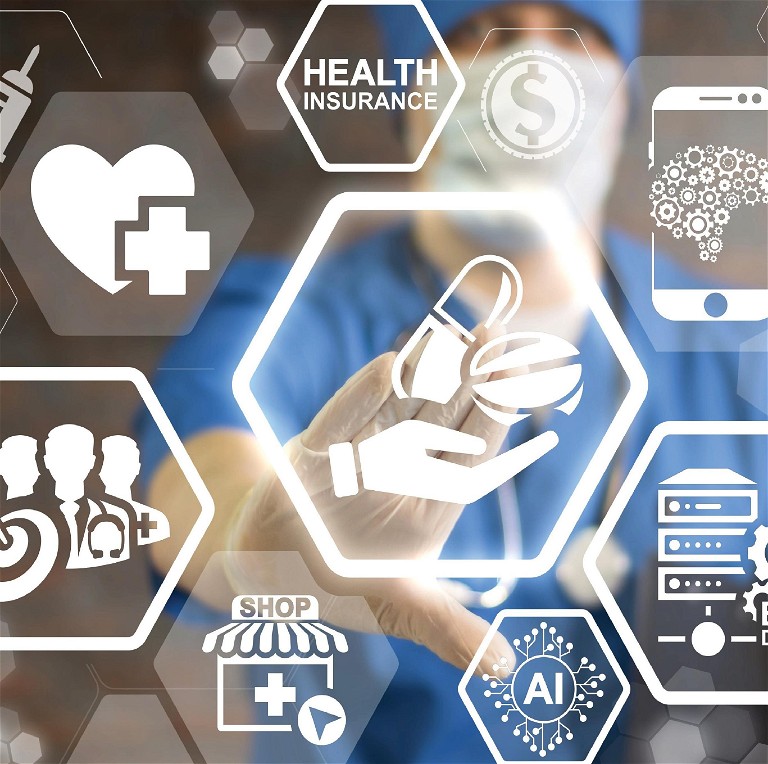How AI can advance today’s complex biopharma launch landscape
Florian Schnappauf from Veeva tells Pharmafocus about the role of generative AI in life sciences sales and marketing and how it can help bring new medicines to market faster

More than a third of Europe’s new drug approvals in the last year were labelled as orphan and the number of gene therapies has more than doubled. 1Specialty medicines are on the rise and success for commercial teams means quickly distilling complex information to reach a more precise audience.
A technology toolbox that includes artificial intelligence (AI) is key to gearing biopharma field teams and marketers up for this precision targeting. By leveraging AI, biopharmas have an opportunity to reach healthcare professionals (HCP) in a more personalised way, which helps them better support their patients.
Pharmafocus: What impact has AI already had on the biopharma industry?
Florian Schnappauf (FS): The life sciences industry has been exploring the use of AI for years. From screening millions of compounds for potential drug candidates to finding specific patients who are most likely to respond to a medicine, AI is helping drive more effective research and development. Within a decade the biopharma industry may use AI to speed product development and create dozens of completely new therapies.
While the focus had been on the benefits of AI for drug discovery and clinical trials, it can play a transformative role in how field and marketing teams engage with HCPs once a product is ready to go to market. AI-powered insights can support more relevant conversations about new specialised treatments, helping HCPs effectively deliver care to the right patients. Biopharma commercial teams that leverage generative AI in this way can make significant strides to reach patients in need faster.
Pharmafocus: How can AI specifically be used to improve pharma sales and marketing?
FS: AI offers a more efficient way to reach HCPs with key content and to match targeted therapies to the right patients. Patient populations for rare disease therapies are smaller while treatments are becoming more complex. HCPs and patients need timely, in-depth information about these medicines. Sales reps are tailoring their engagement strategy to provide HCPs with the right information at the right time through their preferred channel.
For example, field teams can gain deeper insights into their customers and key stakeholders in their wider ecosystem – such as understanding a doctor’s patient population and treatment patterns when preparing for a call. This could make a significant difference in specialty medicines, helping reps analyse volumes of data in real time to bring the most relevant information to interactions with HCPs.
As patients take a central role in their medical decisions, AI can also help marketers better understand their needs to ensure campaigns address specific patient concerns. This can help HCPs answer complex questions quickly and deliver more patient-centric care.
Pharmafocus: What are some of the drawbacks of using AI in the biopharma industry, and do they outweigh the benefits?
FS: AI holds a lot of potential for the life sciences, yet it can present concerns around accuracy and data security. In such a highly regulated industry, AI needs to be implemented responsibly and effectively, in a secure environment, with the most complete and current data.
We still have a lot to learn about how AI can be used, as well as managing change when introducing these new technologies. Without sacrificing accuracy or compliance, AI can lead to more targeted education, improved conversations and healthcare providers receiving more precise information about new medicines tailored to the patients they treat.
Pharmafocus: How can AI be used to get drug treatments to patients more quickly?
FS: AI can save time when applied on the R&D side, but what we are seeing is the application of AI to shorten the timeframe of reaching the relevant HCPs who treat patients for these targeted medicines.

“ 'I believe AI will become a crucial part of any biopharma field team’s toolbox' ”
Leveraging generative AI throughout launch can help teams distil years of data across secure sources to produce actionable insights. From helping sales prioritise engagement with the most influential HCPs to marketers optimising ongoing campaigns that effectively educate patients, AI is a new opportunity that will help streamline how new medicines make it to those who need them.
Pharmafocus: There is a strong concern that AI will make some jobs redundant. To what extent does this apply within the pharma industry?
FS: In the case of biopharma sales and field engagement, generative AI is the first step that requires human interaction. It’s not a replacement. AI can serve field representatives as a powerful tool to help quickly access and sift through large amounts of data so they can decide which content is most relevant for a conversation with a customer.
While nothing compares to human interaction, AI can elevate the HCP-rep relationship and empower biopharmas and their field teams to become trusted and reliable partners to HCPs and patients. Companies need to consider where AI holds the greatest value — how is it serving a unique business use case and where will it drive the greatest impact? Only then can teams implement it effectively.
Pharmafocus: How do you see the role of AI within the pharma industry developing in the next five years?
FS: With more personalised care, targeted therapies and smaller patient populations, the more complex launch landscape calls for a modern approach to engaging with HCPs and patients. This is where AI will make a significant impact on the future of biopharma commercial operations.
In the next five years, I believe AI will become a crucial part of any biopharma field team’s toolbox. They will use it to bring the most relevant information to HCPs and ensure important treatments get to the right patients at the right time. Leveraging new ways to educate the right HCPs in a timely way will be key to delivering better patient outcomes.
References:
Author Bio
Florian Schnappauf is vice president of enterprise commercial strategy at Veeva Europe where he works with customers, partners and product management to further Veeva’s Commercial Cloud solutions for the European market and help the industry speed medicines to patients. Prior to joining Veeva, Florian served as associate partner at McKinsey & Company focused on life sciences, and within other strategy and consulting roles at Airbus Defence & Space, Otto & Company Strategy Consultants and Siemens.